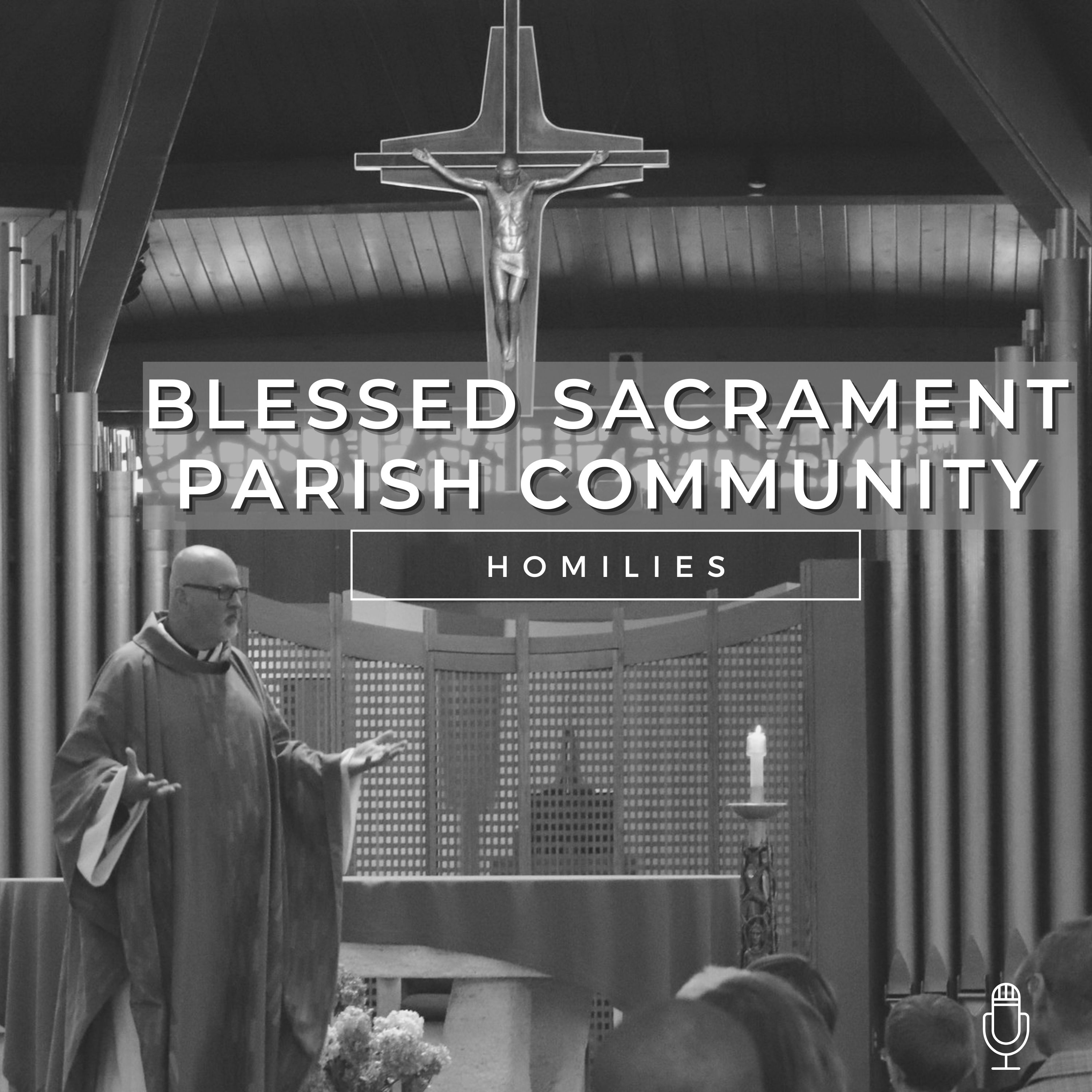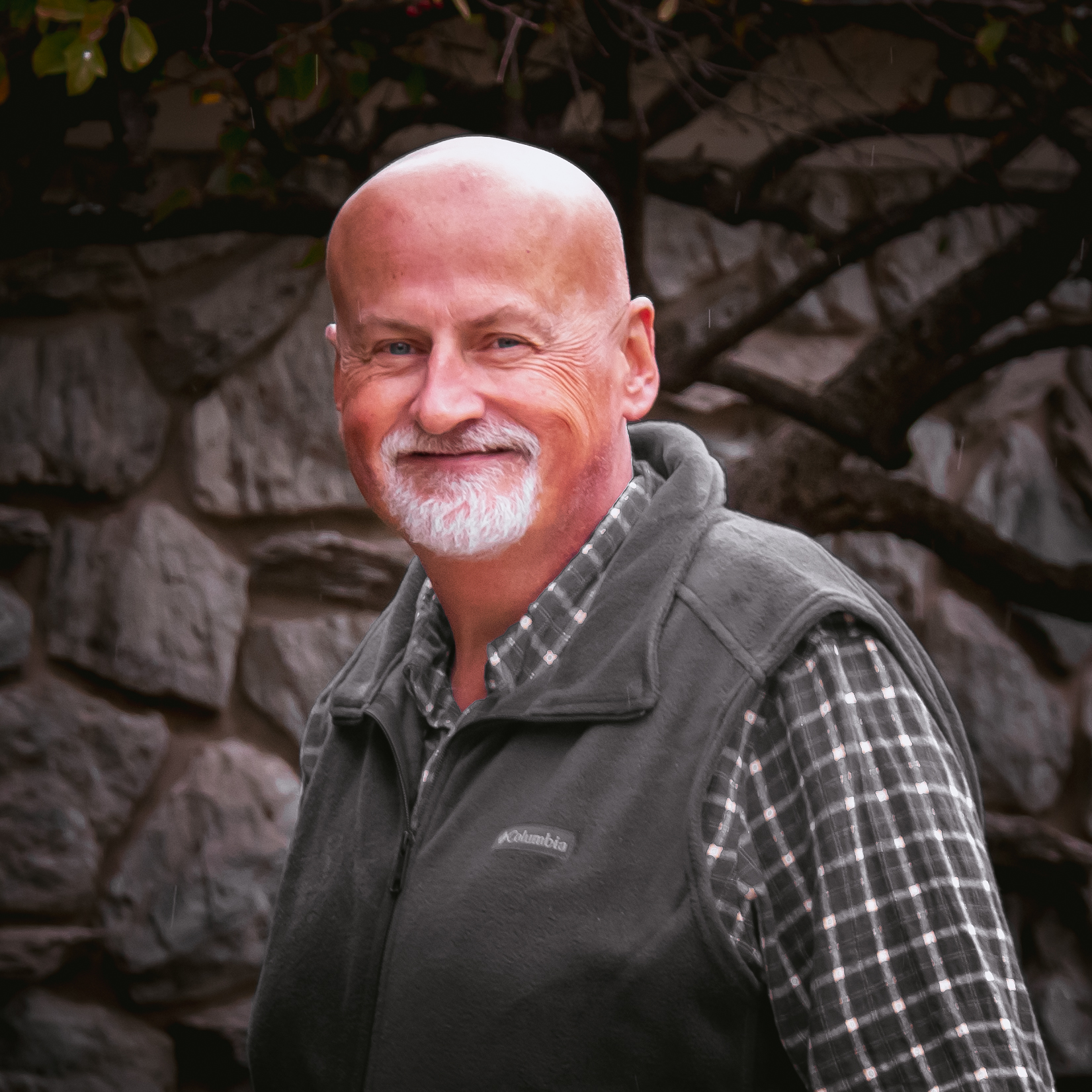Episode Transcript
[00:00:12] Speaker A: Welcome to the Blessed Sacrament Homilies podcast, where our mission is to help everyone recognize and experience the presence of God. We hope you are nourished and encouraged by the Word. Thank you for joining us.
[00:00:26] Speaker B: The Lord be with you and with your spirit. A reading from the Holy Gospel according to John. Glory to you, O Lord Jesus said to his disciples, whoever loves me will keep my word and my Father will love him, and we will come to him and make our dwelling with him.
Whoever does not love me does not keep my words.
Yet the word you hear is not mine, but that of the Father who sent me.
I have told you this while I am with you.
The advocate, the Holy Spirit, whom the Father will send in my name, will teach you everything and remind you of all that I told you.
Peace I leave with you.
My peace I give to you.
Not as the world gives, but do I give it to you.
Do not let your hearts be troubled or afraid.
You heard me tell you I am going away and I will come back to you.
If you love me, you would rejoice that I am going to the Father, for the Father is greater than I.
And now I have told you this before it happens, so that when it happens, you may believe the Gospel of the Lord.
[00:01:52] Speaker A: Praise to you, Lord Jesus Christ.
[00:01:56] Speaker B: It was about 20 years ago and there was a knock at the rectory door, and I answered the door, and it was someone acting as a missionary for a particular church.
And I'm always, or at least always try to be very polite because I think they're doing a good thing most of the time.
Well, this particular individual told me basically everything we do wrong and everything that they think we need to do in order to be saved.
And so I was chatting with them a little bit and throwing some probative questions at them, and it came out that they believed only a very tiny number of people are actually saved. 270 some thousand.
At which point in time I replied back, well, that's interesting. Do you think you're part of that number? Oh, yes, I am.
Well, I said, that's extremely arrogant of you.
And on top of that, what part of stop judging and you won't be judged did you not hear? In the Scriptures they had a very defined set of rules that only if you followed them would God grant you salvation.
Well, as I have gotten older, the amount of rules that I break have gotten much smaller, but the amount of rules I care about have gotten equally smaller.
I don't tend to worry a lot about rules anymore.
And if you listen to that story from the early decades of the Church, you can see that it didn't take humanity long to all of a sudden start saying who's saved and who isn't, what rules you gotta follow and what rules you don't.
And that was one of the biggest struggles in those first decades of the Church, is trying to come up with something that was coherent and understandable without being restricted and sect like.
And one of the biggest controversies in those early decades was whether or not in order to be a Christian, a follower of the Way before the term Christian ever came about, you had to first be a good, law abiding Jew.
And with great wisdom and understanding, the early church fathers decided, no, you didn't really need to do that.
You needed to be instead devoted to Christ.
And I think at the heart of all of that was an understanding that Jesus basically only gave us one law to follow.
Love one another as I have loved you.
And that goes back to my understanding of following rules and worrying about rules. Because I think if we follow that rule clearly and concisely, everything else is going to fall into play.
We don't need to memorize the ten Commandments, because if we're loving everybody, as we should, we're going to be following those commandments, right? We're going to be treating people with justice and respect, with mercy and love.
And the funny thing about it is that when we allow that presence of Jesus to become enfleshed with us, it's so much easier to do that.
But in order to fully understand it, we need to understand what the Mosaic Law was all about.
It was there to create an environment, a community that had every opportunity to know and to experience the presence of God.
And I can think of no better example than that of keeping the Sabbath.
Because what that did is took people that were extremely busy just taking care of their day to day needs and set aside a day for them to be reflective and prayerful and recognize the presence of God.
But here's why the early church said we didn't need to follow all those Mosaic rules and laws, because we already have that profound experience of God. Because Jesus Christ not only is alive, he's dwelling in each one of us, he's already present. We don't have to look anywhere else to find Him. He's right here, right now with us.
So the law is fulfilled in his presence in our lives.
So rather than thinking a small number of people are saved, we're probably a lot better off just trusting that Jesus is going to do the saving and he's going to take care of us and instead live out that law of love for one another.


